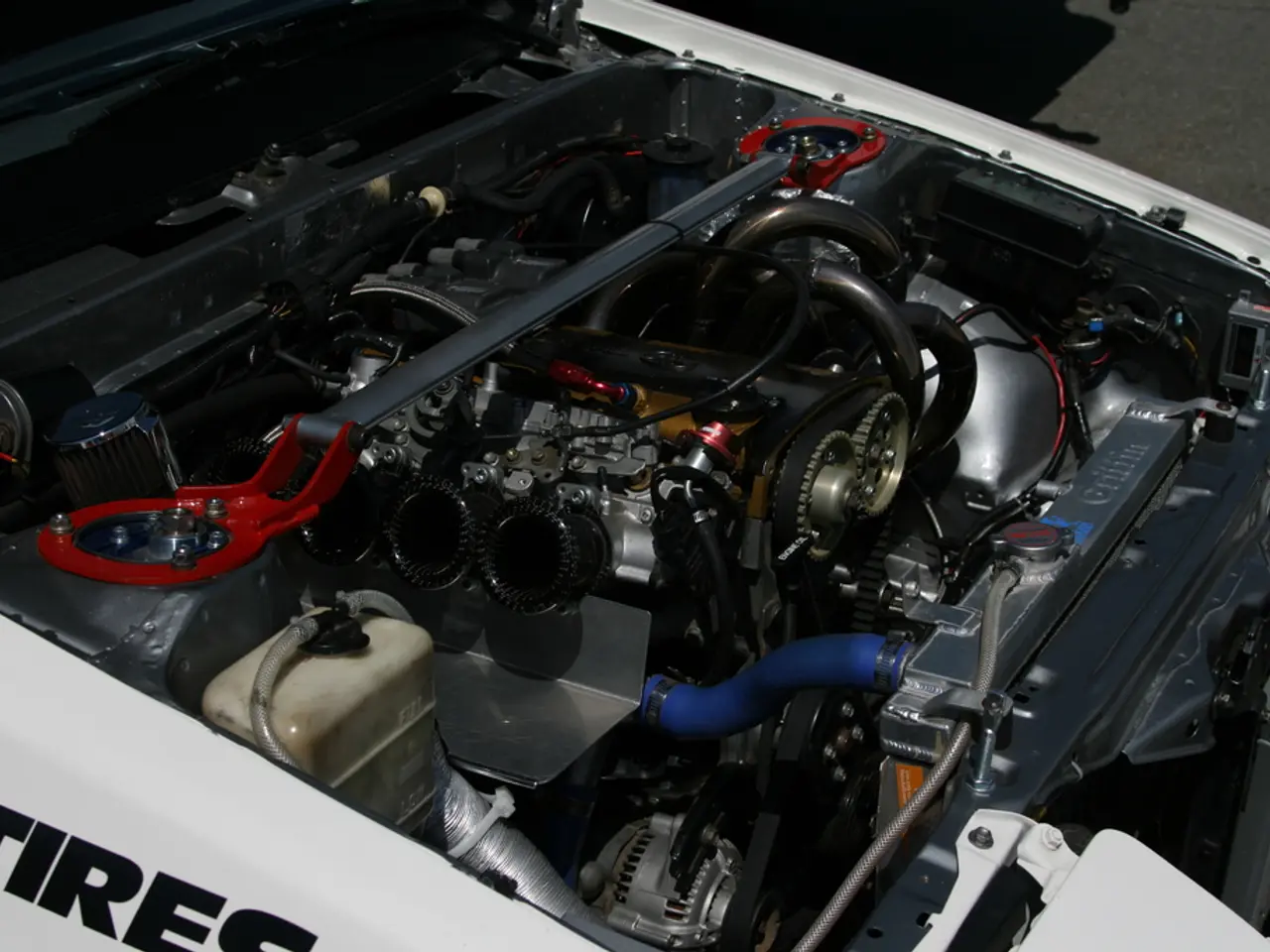Panasonic planning to unveil novel electric vehicle battery by 2027
Panasonic Announces Development of Anode-Free Battery Technology for Electric Vehicles
Panasonic Energy, a leading battery manufacturer, has announced plans to develop a new anode-free battery technology aimed at increasing energy density and reducing production costs in electric vehicles (EVs). The technology could potentially revolutionize the EV news industry by increasing battery capacity, improving range, and reducing weight.
According to Shoichiro Watanabe, the technology chief of Panasonic Energy, the new battery type will allow for more active cathode materials like nickel, cobalt, and aluminum without changing the battery pack's volume. This could lead to a significant increase in storage capacity, with a potential 25% increase in battery capacity translating to an increase in range of nearly 145 kilometers for Tesla's Model Y.
The technological innovation involves the lithium-metal anode forming after the first charge. This approach could potentially reduce the weight of EVs and bring economic benefits due to the relatively high cost of nickel compared to other materials. Additionally, the technology could also reduce the nickel content in batteries, another economic advantage.
If successful, the storage capacity of batteries could increase by 25%. The new battery type is expected to achieve a "world-leading level" of capacity by the end of 2027.
A company representative spoke to reporters about the anode-free technology ahead of a presentation by Shoichiro Watanabe. Panasonic is planning to develop the new battery type within the next two years.
Other global battery manufacturers are also currently working on similar solutions, according to Reuters. The technology could be used to build smaller and lighter or more affordable batteries with the same range, potentially leading to a reduction in vehicle prices. However, whether the technology will ultimately lead to a reduction in vehicle prices remains to be seen.
Panasonic did not provide any details on this matter. The company's announcement has sparked excitement in the EV news industry, with many hoping that the new technology will lead to more efficient and affordable electric vehicles in the near future.
Read also:
- Electric-powered vessels take to the waters of Maine
- Elon Musk accused by Sam Altman of exploiting X for personal gain
- Comparing the value of top electric scooters: Kinetic DX versus Bajaj Chetak versus TVS iQube - Which one offers the best bang for the buck?
- American Eagle's risque promotional effort featuring Sydney Sweeney leads to the brand being categorized as a 'trendy stock' among teenagers.




